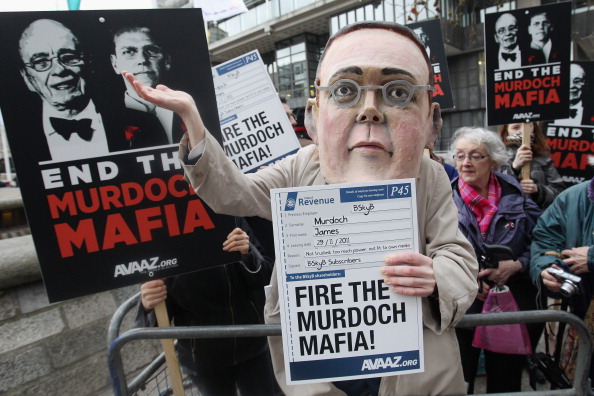Freedom of speech and privateness
by Jendela Ilmu in Discussions 0

Professor Eric Barendt of University Faculty London discusses the fragile steadiness between free speech and privacy.
Protesters show exterior the annual normal assembly of BSkyB to call for James Murdoch to face down as chairman on November 29, 2011 in London, England. The protests follow News International's telephone hacking scandal. (Photo by Oli Scarff/Getty Pictures)
Both freedom of speech and privacy are fundamental rights, that are equally recognised within the Common Declaration of Human Rights, by international conventions such as the European Conference on Human Rights, and in lots of nationwide constitutions. How do they relate to each other?
Protesters show exterior the annual normal assembly of BSkyB to call for James Murdoch to face down as chairman on November 29, 2011 in London, England. The protests follow News International's telephone hacking scandal. (Photo by Oli Scarff/Getty Pictures)
Both freedom of speech and privacy are fundamental rights, that are equally recognised within the Common Declaration of Human Rights, by international conventions such as the European Conference on Human Rights, and in lots of nationwide constitutions. How do they relate to each other?
It is typically thought that these two rights have to be in battle with one another, and typically that is the case, most notably when a tabloid newspaper or a blogger wants to reveal something a few movie star’s private life - significantly intimate particulars of her intercourse life - which she would like to keep to herself and some friends. But very often privacy is important for freedom of speech (or expression). Buddies and lovers cannot communicate openly with each other, until they are certain that their conversations will not be overheard and filed by the federal government or repeated within the mass media. Even political conversations may require privacy, as when civil servants and ministers, or coalition companions, focus on sensitive matters of policy; they may not want to disclose - a minimum of in the intervening time - their conversations to the general public, and a few courts, notably, the German Constitutional Court docket have held that they are often protected as a matter of privacy.
However how ought to conflicts between privacy and freedom of speech be resolved? The law cannot shield each rights when these conflicts arise - neither is completely protected. My view is that we now have to ask what the worth of the speech in the explicit case is and evaluate it with the importance of the privacy, which would be sacrificed if freedom of speech is given precedence over it. If the speech - say, an article in a newspaper or a blog - contributes to necessary political or social debate and doesn't intrude drastically on intimate particulars about a person’s personal life - say, it mentions in passing solely her dietary preferences or what she wore at a dinner party - freedom of expression should win over privacy. But if the article reveals intimate details of a celebrity’s sexual life or medical history, privacy should win, as a result of it is exhausting to see how such disclosure can contribute to an vital public debate.
Of course, there are some very difficult points on this area. How much privateness does a politician sacrifice when she enters public life? Suppose a tabloid paper reveals that she took medicine at college and justifies publication of that story with the argument that voters are entitled to know the moral document of someone who's standing for election as a member of parliament? On the other hand, can it be argued that even politicians are entitled to some privacy, as a result of otherwise few people, except the crassly insensitive, will enter public life and further, few, if any of us, have an unimpeachable ethical document? I think that even a level of hypocrisy could also be justified as an important factor of privacy; we are certainly all entitled to say to strangers that, “We are in good well being and spirits,” even though we've been advised earlier that day that we've a serious sickness or that our associate wants to finish the relationship. Privateness offers everybody a right to regulate what data is divulged to whom.
The courts in England in the previous couple of years have incessantly given orders to the press to not publish tales of little public interest which infringe the non-public privateness of celebrities, particularly these revealing the behaviour of footballers off the pitch. Then comes the laborious question, whether or not these orders might be made effective in opposition to bloggers and tweeters who reveal the title of the footballer or particulars of his behaviour. Bloggers can claim individual freedom of expression after which the press can argue that the story is now within the public domain as a result of it is all around the internet. One other exhausting query is whether decision of these conflicts may be left to the courts or ought to be handled by some informal tribunal or body such as the UK Press Complaints Fee; it prices a number of thousand pounds to get a court order, effectively beyond the technique of most people. However the existence of those tough points mustn't lead us to desert privateness rights altogether, for with out their effective protection a lot particular person autonomy and intimacy can be lost.
Eric Barendt, Emeritus Professor of Law, UCL, is the creator of the traditional reference work Freedom of Speech (OUP) and an advisor to Free Speech Debate.